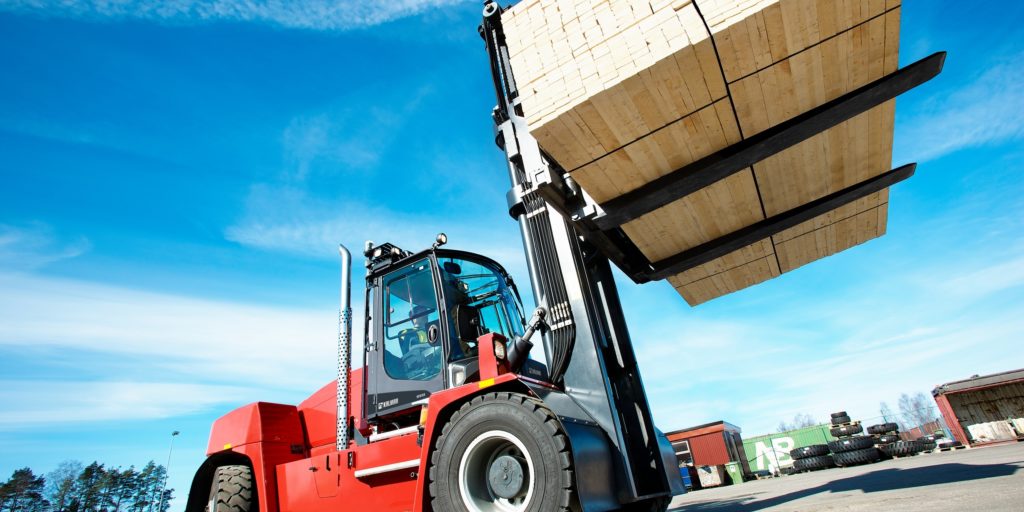Forklift Winter Prep: Steps to Take

When you buy a forklift, you make a significant financial
investment. They are also the backbone of your company. Without them, you
cannot keep your business running, complete your contracts, or move your
inventory.
That is why you must keep your forklifts in excellent working
condition, all year round. Winter in particular presents challenges for
forklift maintenance. When you buy a forklift, you rarely think about your
shiny new machine rusting because of snow or its fluids congealing because of
the cold. However, those setbacks are a real possibility if you do not take
proper care of your machine.
To help you weather winter more successfully with your forklifts, here are some
tips for preparing them for the coldest, harshest months of the year.
Prepare shelter for your
forklifts.
When you buy a forklift, you purchase an important piece of
machinery. Keep it running for as long as possible by sheltering it during the
winter. The best place to store it is indoors, where it will be away from the
cold and snow. However, if indoor storage is not possible, you can always opt
to use a forklift cover. Shielding your machinery from the harsh weather can
prevent rusting, fluids congealing, and other problems that might shorten your
forklift’s life or saddle you with expensive repair bills.
Check your tires.
Winter is notorious for its icy, snowy, slippery driving
conditions. In order to ensure safe driving during the winter months, you
should check your forklifts’ tires. Make sure that they have sufficient
pressure and tread to navigate the chilly winter months. Soft, bare tires have
a harder time gaining traction in slippery conditions. As a result, consider
replacing any tires that are not in excellent condition.
Top off, and stay on top
of, your fluids.
Fluids like oil and antifreeze help to lubricate your
forklifts’ engines. That lubrication keeps the engine running smoothly even
during cold weather. In order to keep your forklifts in top working order
during the winter, make sure you top off these fluids ahead of time.
After you top them off, check them before every single shift.
In extremely cold weather, fluids can congeal, and you can damage your forklift
running it with these congealed fluids. In addition, you want to make sure your
fluids are topped off before every shift so you never have to worry about
running out of these fluids while the forklift should be working. Preventing
fluid issues now and throughout the winter can prevent bigger issues that would
lead to downtime and expensive repairs later on.
Make sure your battery
is fully charged.
Cold weather can quickly suck the life out of a battery. If
your forklift battery is already weak, the cold weather can be enough to kill
it. Then you suffer downtime and lost money replacing the battery. Instead,
check your battery before winter sets in. Even if you buy a forklift shortly
before winter sets in, double checking its battery now is a smart move.
Make sure that the battery can hold a full or almost full
charge. If you find that your forklift’s battery struggles to hold a full
charge, you may want to replace it. With a strong battery, you face a greater
chance of making it through the winter without unexpected breakdowns of your
machine.
Keep your forklifts
clean.
Winter can be a messy season. Mud, dirt, salt, sand, and slush
can all take up residence on and inside your machinery. The problem with all
this dirt isn’t just cosmetic. The dirt can clog up the sensitive internal
parts of your machine and make it harder to run efficiently. In order to keep
your forklifts in good working order during the winter, take time to clean them
frequently. Removing the winter build up will keep your machine running
smoothly and reliably for longer.
Train your operators on
safe winter driving.
Winter does not just threaten the quality of the forklifts. It
can also make it more difficult for your operators to run the machines. Icy,
slippery conditions can be dangerous if your operators do not know how to drive
in those conditions.
To prevent potentially serious accidents, train your operators
ahead of time on how to safely use the forklifts in the winter weather. Provide
them with helpful safety tips to significantly improve their driving, and their
safety, during the winter.
Give your forklifts a
safe place to drive.
You can also prepare your forklifts for winter by preparing
your work areas for winter. Creating safe areas where your operators can drive
can reduce accidents and improve worksite safety. To that end, make sure to
keep pathways clear of snow and ice. In addition, consider putting down a
salt/sand mixture called grit on these pathways. The grit will help to melt the
snow and ice and provide traction for your machines.
Give your forklifts a tune-up
before winter sets in.
There are many parts of your forklifts that are susceptible to
the winter weather. If you want to prevent breakdowns during the colder months,
you should complete a tune-up of your forklifts. When you buy a forklift from a
reliable dealer, you should get access to a comprehensive maintenance plan as
well. This plan allows you to keep your forklifts in good working order all
year long, including a tune-up before the colder weather sets in.
Here at Darr Equipment, we can help you to prepare your
forklifts for the winter. With comprehensive maintenance plans, as well as
expertise, guidance, technicians, and more, we can help you save money on buying a reliable machine,
and help you to keep it in top working order all year round.